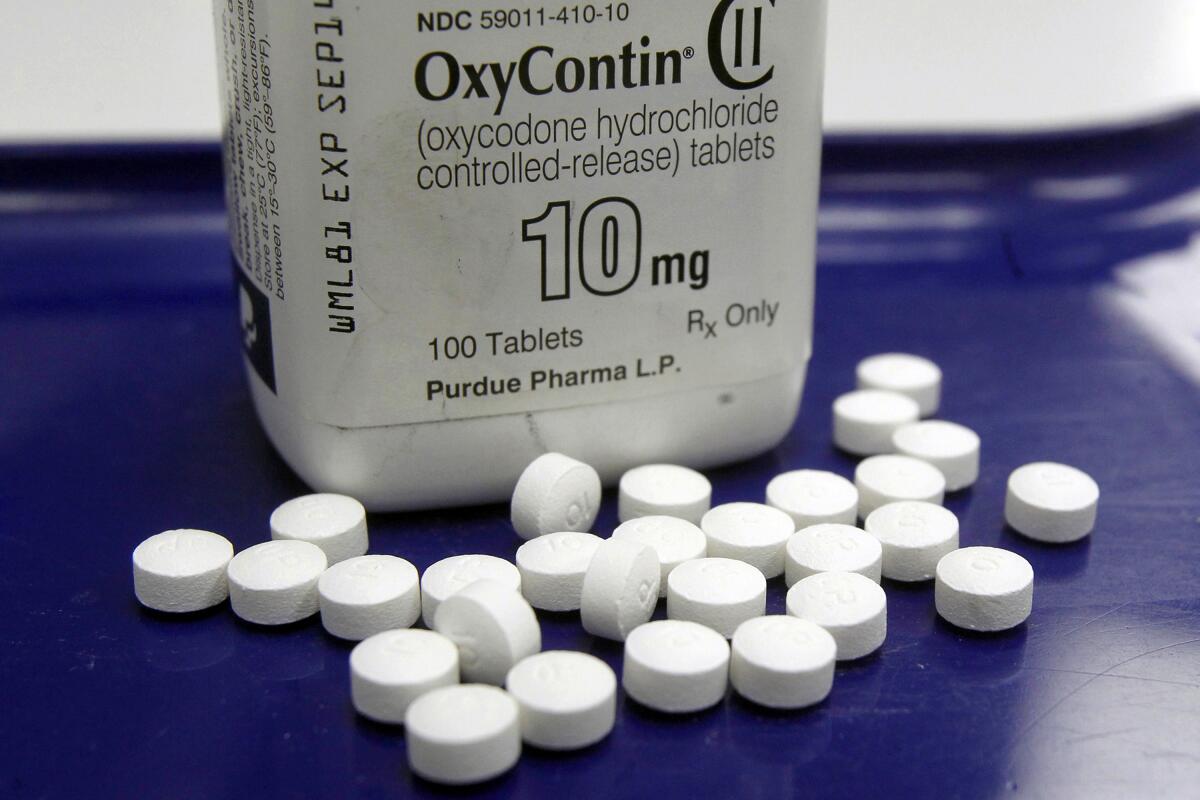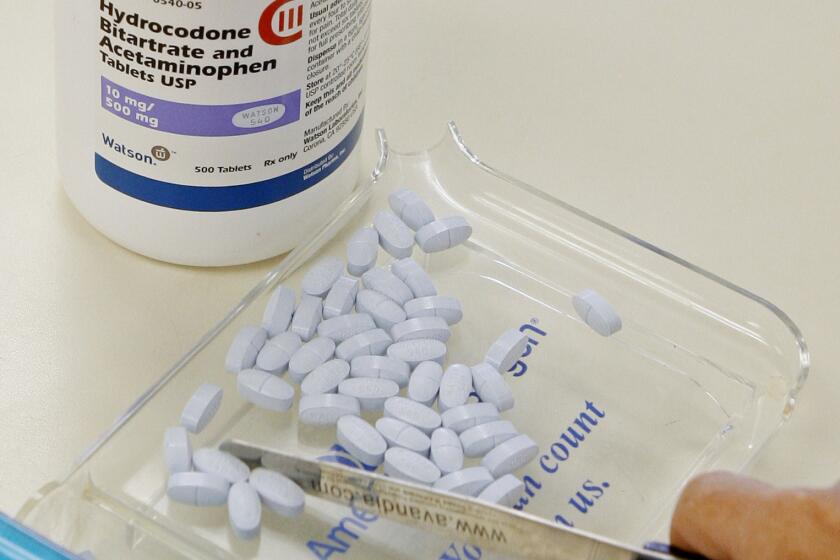Justice Department slams DEA for allowing dramatic oxycodone production increase as opioid crisis grew

WASHINGTON — A new report from the Justice Department’s inspector general found that, despite growing evidence that opioids were being overprescribed and abused, the Drug Enforcement Administration increased oxycodone production quotas by 400% between 2002 and 2013.
Department of Justice Inspector General Michael E. Horowitz said in a video announcement Tuesday that the DEA, which is responsible for regulating opioid production quotas and investigating the drug’s illegal diversion, was slow to respond to the opioid crisis despite concerning rates of abuse.
“Unlike past drug crises, in combating the current opioid epidemic DEA failed to develop a comprehensive national strategy that could have focused and directed its regulatory and enforcement efforts,” the report said.
The White House declared the opioid epidemic a public health emergency in 2017, a year that saw an average of 130 opioid overdose deaths per day, according to the Centers for Disease Control and Prevention. Since 2000, there have been 300,000 opioid-related overdose deaths in the U.S.
A U.S. senator on Friday called for federal investigations of OxyContin’s manufacturer in response to a Los Angeles Times report that found the bestselling painkiller wears off early in many patients, exposing them to increased risk of addiction.
The report on the DEA’s response to the increase in opioid abuse in the United States said that, from 1999 to 2013, opioid-related deaths grew by about 8%. From 2013 to 2017, those deaths escalated by about 70%, according to the report.
Horowitz said that it wasn’t until 2017 that the DEA significantly reduced the production quota for oxycodone by 25%. In 2018, the DEA further reduced the quota for oxycodone by 6%.
The report also found that the DEA failed to capture sufficient data to detect emerging drug trends or suspicious orders in a timely manner, which may have contributed to its “overall” insufficient response to the crisis.
The report makes nine recommendations to improve the DEA’s prosecution and regulatory efforts “to prevent a similar healthcare crisis from occurring in the future,” Horowitz said.
The recommendations include a revamped national prescription opioid enforcement strategy, requiring criminal background investigations of all new registrant applicants and calling for all suspicious orders reports be sent to DEA headquarters, among other suggestions.

The Department of Justice Inspector General Michael E. Horowitz announces the release of a repeat criticizing the DEA.
U.S. and Canadian patients were more likely than Swedes to fill prescriptions for opioids after a surgery. They also received higher doses of the painkillers.
More to Read
Inside the business of entertainment
The Wide Shot brings you news, analysis and insights on everything from streaming wars to production — and what it all means for the future.
You may occasionally receive promotional content from the Los Angeles Times.










